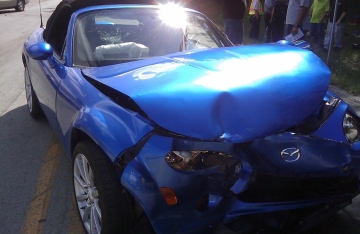Major television broadcasters and Aereo, a 2-year-old startup company, will argue before the U.S. Supreme Court for reasons that are much more controversial than appearances lead people to believe.
The outcome could have widespread effects on the future of television and cloud computing, the quality of wireless service, and entrepreneurs trying to create in the technology field.
Here are four reasons how the decision could affect TV’s future:
1. Less Options
Aereo uses tiny antennas to capture broadcast airwaves and then retransmit those airwaves to its subscribers over the Internet. Broadcast channels such as Fox, ABC, NBC, and CBS, are transmitted free of charge to anyone who has an antenna on their television, however, major cable companies pay those broadcast channels billions of dollars in fees for the right to re-broadcast the network TV as part of paid cable packages.
Broadcasters have sued, claiming Aereo is violating copyright law by retransmitting the shows. But, if Aereo is legal, these channels fear there is nothing stopping cable companies and satellite providers like DIRECT TV from copying Aereo’s business model to avoid paying broadcasters billions of dollars in fees.
Since about 10 percent of Americans watch broadcast television via antennas or via streaming services, if Aereo loses the case, it will likely shut down, thus leaving many people with one less viewing option. However, if Aereo wins, it is likely broadcast channels will be without enough money to fund their channels, causing the channels to shut down.
2. Sports
If Aereo wins, NFL and MLB have threatened to stop broadcasting their games on basic channels, instead only showing them on cable networks such as Fox Sports and ESPN.
CBS, Fox, and NBC currently broadcast most NFL games on Sundays with Fox broadcasting a few baseball games. However, those games will be moved to a paid channel if Aereo wins.
3. Legal Risks
Aereo streams network TV to subscribers via servers in “the cloud.” If Aereo is violating copyright law, other cloud providers could also be held responsible for helping users gain access to illegal content. For example, Google or Dropbox could be responsible for policing the content stored in a Google Drive or Dropbox account to avoid copyright violations.
4. An End To Innovation?
Much like the controversy over VCRs, which had broadcast companies concerned about copyright laws of taping something that could potentially be distributed, entrepreneurs are concerned over the fate of future innovations.
Aereo supporters believe that banning Aereo’s business model will suppress future innovations. However, broadcasters argue that if Aereo is deemed legal, it will stifle innovation.
Unfortunately for Aereo, either Supreme Court decision, whether in favor or against, will likely hurt the company. If it loses, it has no ability to fund itself. If it wins, users will be paying for a service that offers close to nothing if broadcast channels fold.
However, “What is at stake is the basic right of every copyright holder to determine if, when, and how to make its copyrighted work available to the public,” the broadcasters wrote in their brief to the Supreme Court. “Copyright protection need not fall by the wayside for innovation to continue.”
Image Source: www.techspot.com



